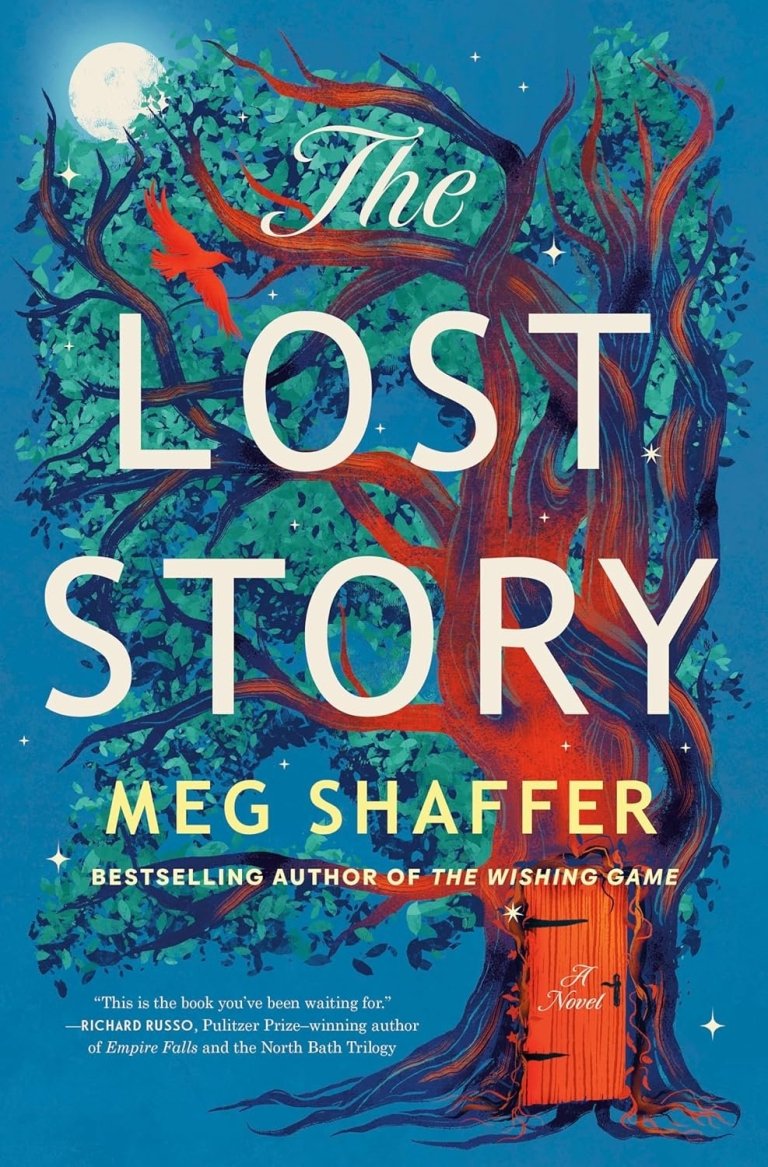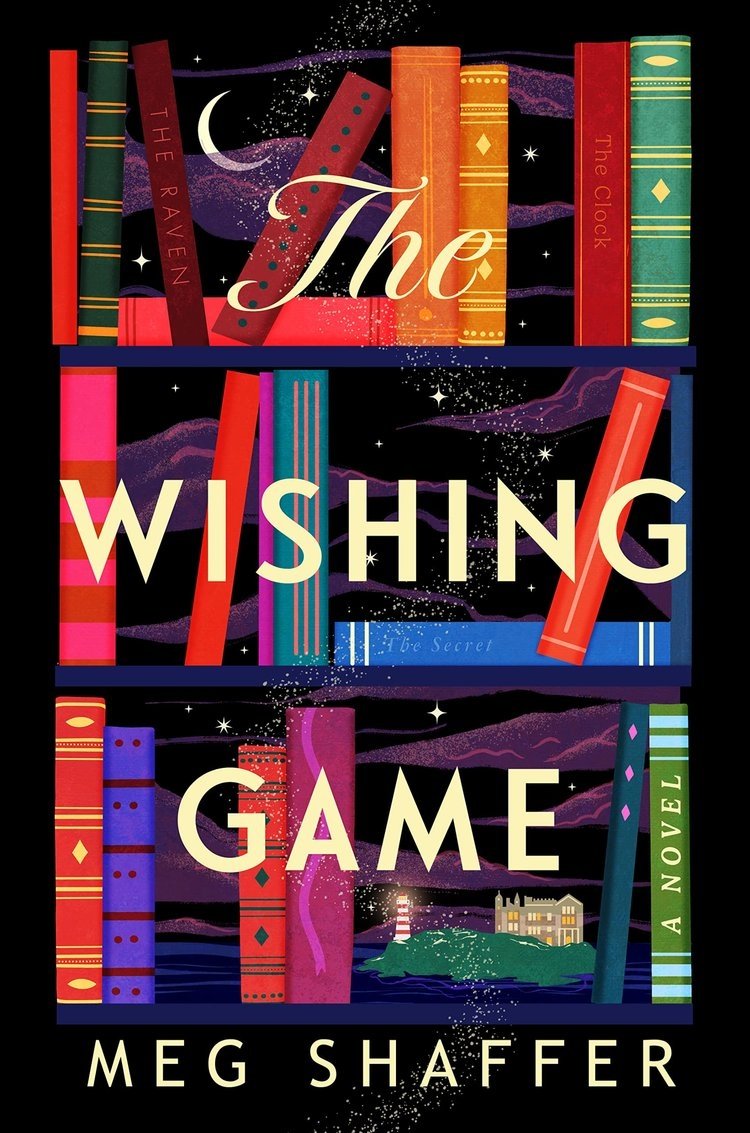Centre grad's romance roots paved the way for literary success

After a trove of steamy successes, novelist Tiffany Reisz Shaffer ‘00 has successfully turned the page to realize her dream of writing mainstream fiction.
“When I was eight or nine years old, I absolutely did not imagine writing romance novels,” Reisz Shaffer laughs. “I imagined writing what I’m writing now… This is the childhood dream come true — finally.”
Stirred to shift genres during the pandemic, the former English major’s literary revamp now includes two contemporary fantasy novels — filled with wonder, magic, and mystery — written under the pen name Meg Shaffer and published by Ballantine Books, a subsidiary of Penguin Random House.
Released in 2023, “The Wishing Game,” quickly became a national bestseller. Some of the many accolades include Reader’s Digest and Washington Post Best Book of the Year, Goodreads Choice Awards Finalist, USA Today Bestseller, Book-of-the-Month finalist for Book of the Year, and #1 Barnes & Noble Bestseller.
Described by its author as a Willy Wonka for adults, the story has been translated into 21 languages.
“The Lost Story,” a portal fantasy, penned in the style of “The Chronicles of Narnia” series, was released in July and also made the USA Today Bestseller list.
Farewell Romance
The Centre grad’s transformation to mainstream fiction comes after authoring 35 erotic romance books. Writing under her maiden name, Tiffany Reisz, Reisz Shaffer’s first erotic novel “The Siren,” happily got a sales boost when its release coincided with the popular “Fifty Shades of Grey.”
Prodigious writing followed.
Once a self-described “smut peddler” who swapped seminary grad school for an uncertain future as a romance novelist, Reisz Shaffer does not shrink when discussing her “literary friction.”

“Just being cheeky,” she explains. “ … [A]t the end of the day, we’re all party clowns and court jesters. The sooner you figure that out as an artist, the easier time you will have in your career and you’ll handle bad reviews a lot better.”
But for Reisz Shaffer, the work of writing is a serious matter. And she approaches it with an unflinching earnestness. Consider her USA Today bestselling “Original Sinners” series, which provocatively features a racy Catholic priest created for shock value “mostly because I wanted to talk about theology.” Infused in her erotic fiction, readers encounter a full dose of BDSM content supplemented with a steady sprinkling of religion and art.
Reisz Shaffer only compliments romance erotica, saying the genre both empowers women and helped pay off her student loans. More than that, she enjoys a loyal readership, many of whom have followed her across genres.
Then there is the pandemic and the death of her cat. Fighting off the gloom, Reisz Shaffer was ready to start writing a different sort of story, one she’d been thinking about for some time. Published under the pen name Meg Shaffer, “The Wishing Game” shoots squarely at the adventure and magic encompassed in the books she has loved since childhood.
As for erotic romance, Reisz Shaffer says, “It’s out of my system now. I was so fascinated by sex and religion in my 20’s and 30’s. And now I’m in my 40’s. I’m returning to my childhood and kids books.”
Lessons learned at Centre
Before Reisz Shaffer became an award-winning author working on her latest book deal, she was a teenager who counted herself lucky to be admitted to Centre.
A lover of books from the age of three, she relied more on her wits than hard work at Owensboro High School.
“I learned all the wrong lessons,” she explains. “I was rewarded for being lazy and clever, which works very well as a writer, but does not work very well in school.”
Her uneven high school resume brought a conditional offer from Centre; earn admission by completing summer coursework in introductory math and English.
For Reisz Shaffer, the proof of the pudding has always been in the writing. Seeing her first essay, English professor Mark Lucas wondered why the talented young writer was in his intro course.
“She had no need for the class,” Lucas recalls. “She was already a crackerjack writer – and, as real writers always are, a voracious reader.”

Fostered by Centre’s nurturing academic environment, the future novelist learned a newfound discipline that helped her navigate college life. By the end of freshman year, Reisz Shaffer was flourishing, winning The John W. Redd English Prize and happily ensconcing herself in the depths of the English program.
Some lessons learned have proved invaluable. One came at first-year orientation, when she asked Professor Lucas which student was most likely to get published first. The professor named Will Lavender ‘99, who went on to debut his first novel in 2008, because of Lavender’s willingness to discard words and pages that didn’t work.
“That’s important for an artist, that moment when you realize just doing it is not enough,” Reisz Shaffer said. “It has to be done well. I still delete hundreds of thousands of words for every book and it absolutely made my career. That’s how I write.”
Another enduring lesson came while studying a Eurora Welty novella. Reisz Shaffer remembers her amazement when Lucas revealed the book was based on Homer’s “Odyssey.”
“It blew my mind,” she said. “I did not know you were allowed to do that. I did not know you could take a classic of literature and rewrite it … and make it your own and claim ownership of it. Once I learned that, I have been doing it ever since.”
Her two new novels are exactly that. “The Wishing Game” is modeled after “Charlie and the Chocolate Factory,” but adapted for adult audiences. “The Lost Story” is an American Narnia set in West Virginia.
Today’s success is hard won. Reisz Shaffer’s early attempt to ink a novel while at Centre, “went horribly” and led her to quit writing, thinking she lacked the talent.
But books and words maintained a defining pull. If ‘writer of books’ wasn’t to be, it was — for a time — her lot to sell them as an hourly bookstore employee. As it turned out, the roadblock to novelist was self imposed. By measuring herself against great authors, Reisz Shaffer grew intimidated.
“Aspiring writers need to not compare themselves to other writers,” she cautions.
Shelved for a time, her literary nature resurfaced while Reisz Shaffer was attending Asbury Theological Seminary in Wilmore, Kentucky. A good student who wanted to eventually teach theology, she found herself writing romance fiction on a lark. The erotic work was good enough to attract a fanbase of fellow seminary students. Eventually the hobby grew too time-consuming, negatively impacting her studies. It was time to take the leap and write full-time.
That’s when concerned school officials tasked a resident assistant to dissuade Reisz Shaffer from quitting and embarking on a precarious writing journey. But after a coffee shop meeting, it was the RA’s opinion that was changed. “She saw it in my eyes,” Reisz Shaffer said. “I had found my calling.”
Today, Reisz Shaffer pursues her calling in Louisville with her husband, New York Times bestselling author Andrew Shaffer.
Always a student of the written word, she used some of the money from her latest books to pay for an MFA degree in TV and screenwriting from Stephens College. She has also taught creative writing at Carnegie Center of Literacy and Learning in Lexington.
As for the change in genres? “Oh my gosh, Meg Shaffer pays so much better than Tiffany Reisz ever did,” Reisz Shaffer said. “Writing mainstream hardcover fiction for Random House is the major leagues.”
This article appears in the Fall/Winter edition of Centrepiece.



